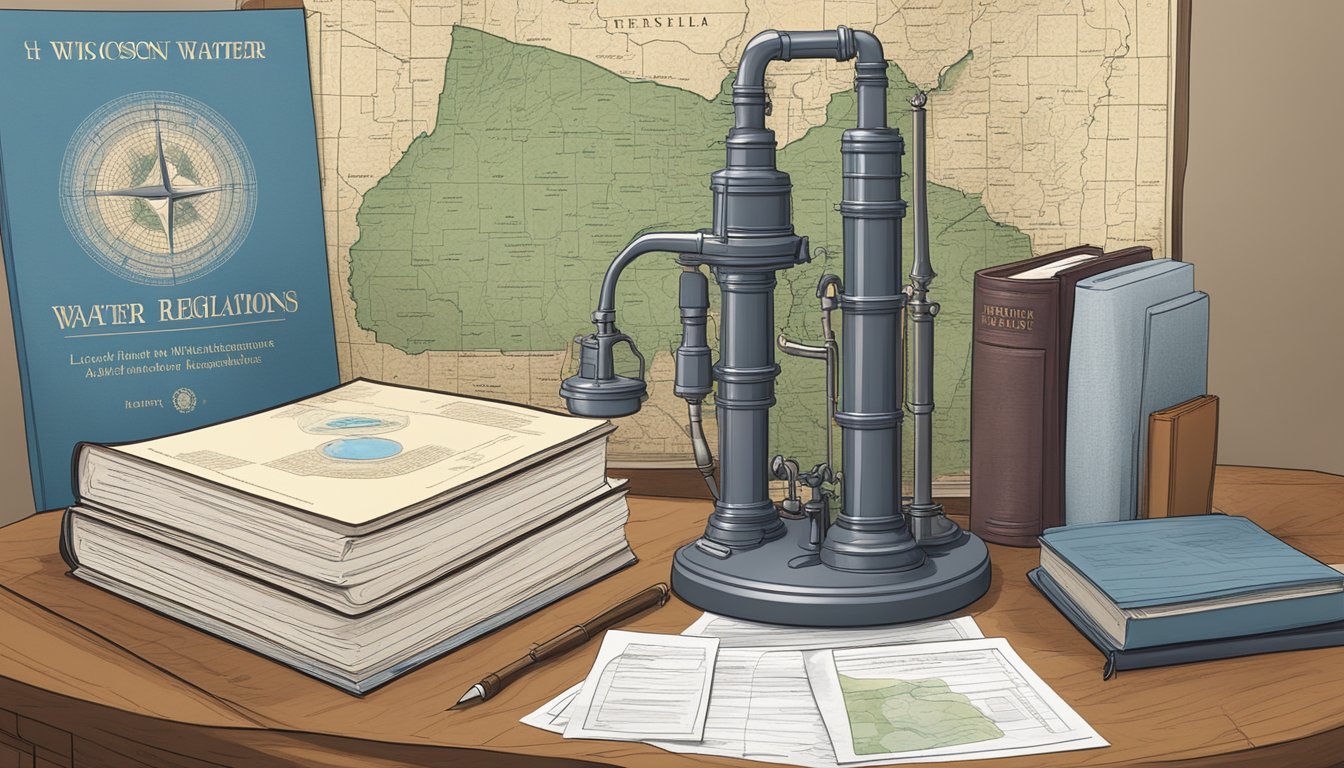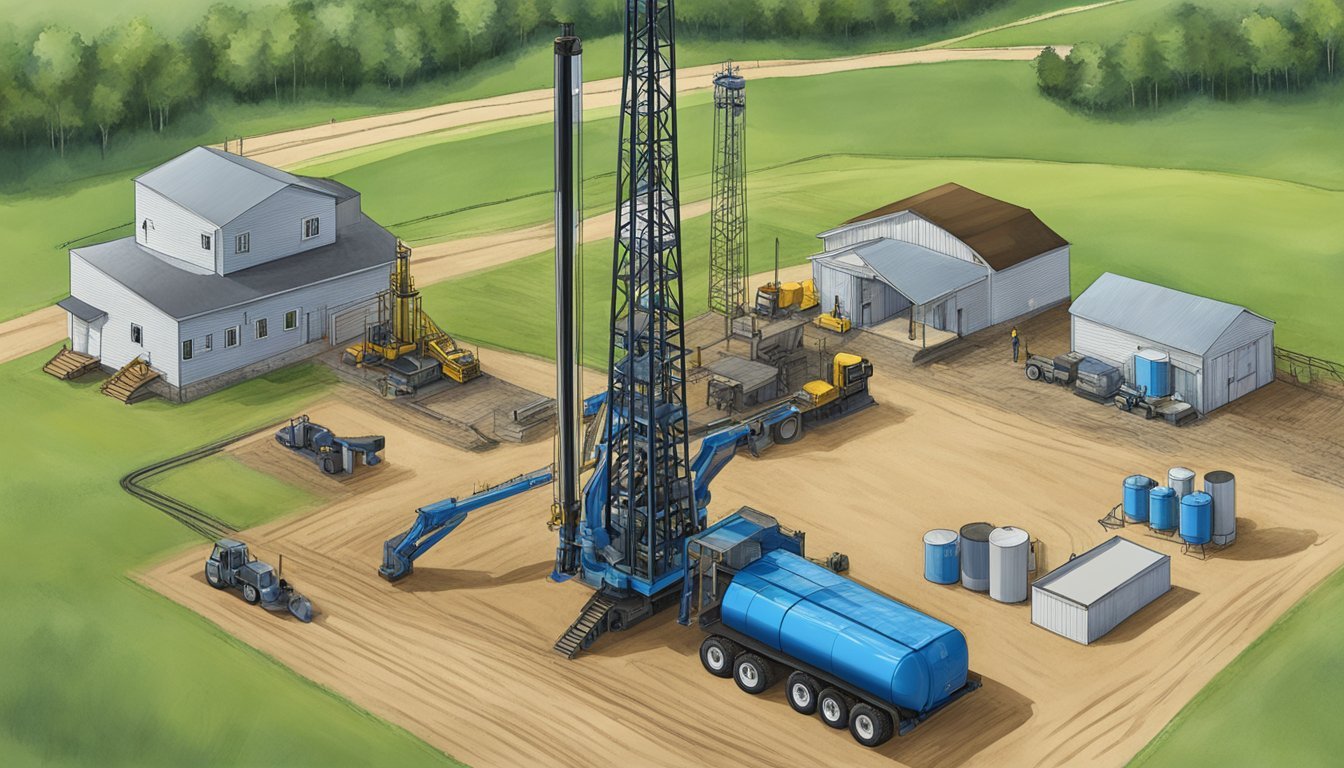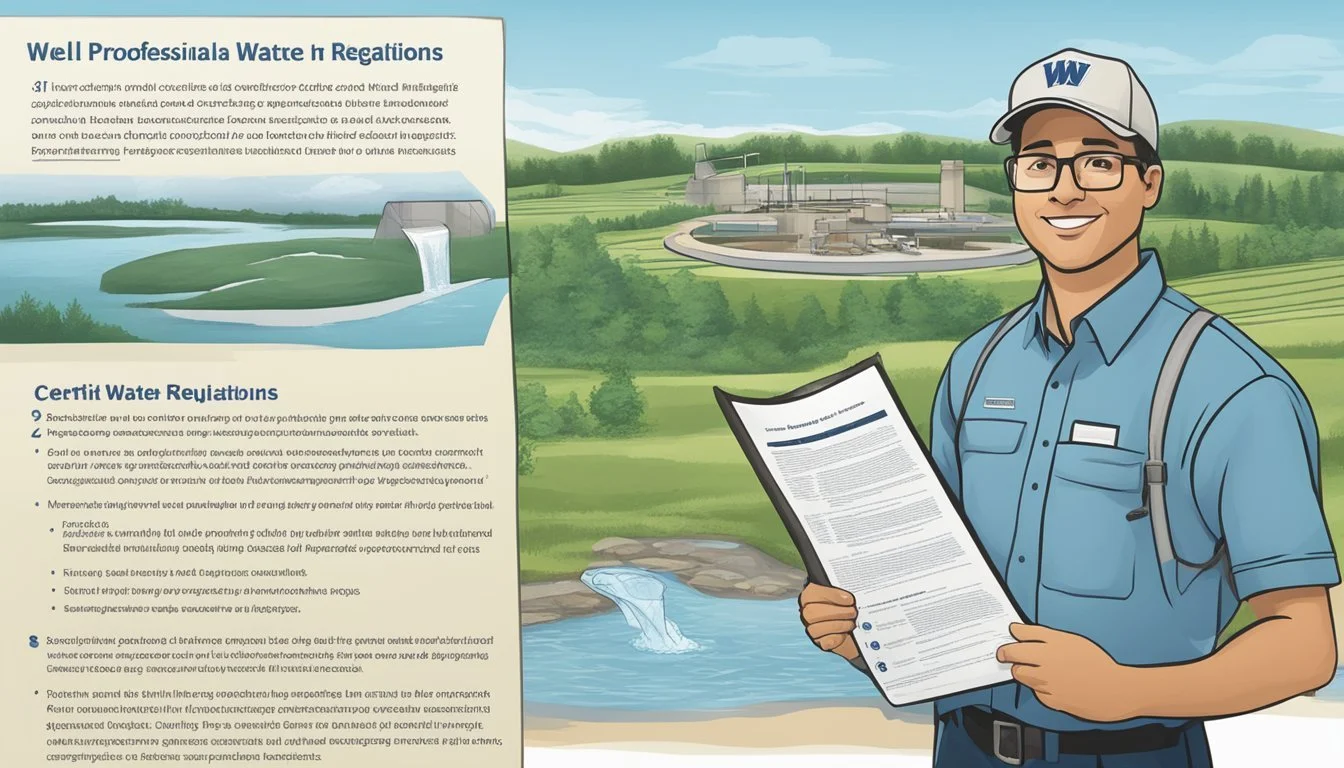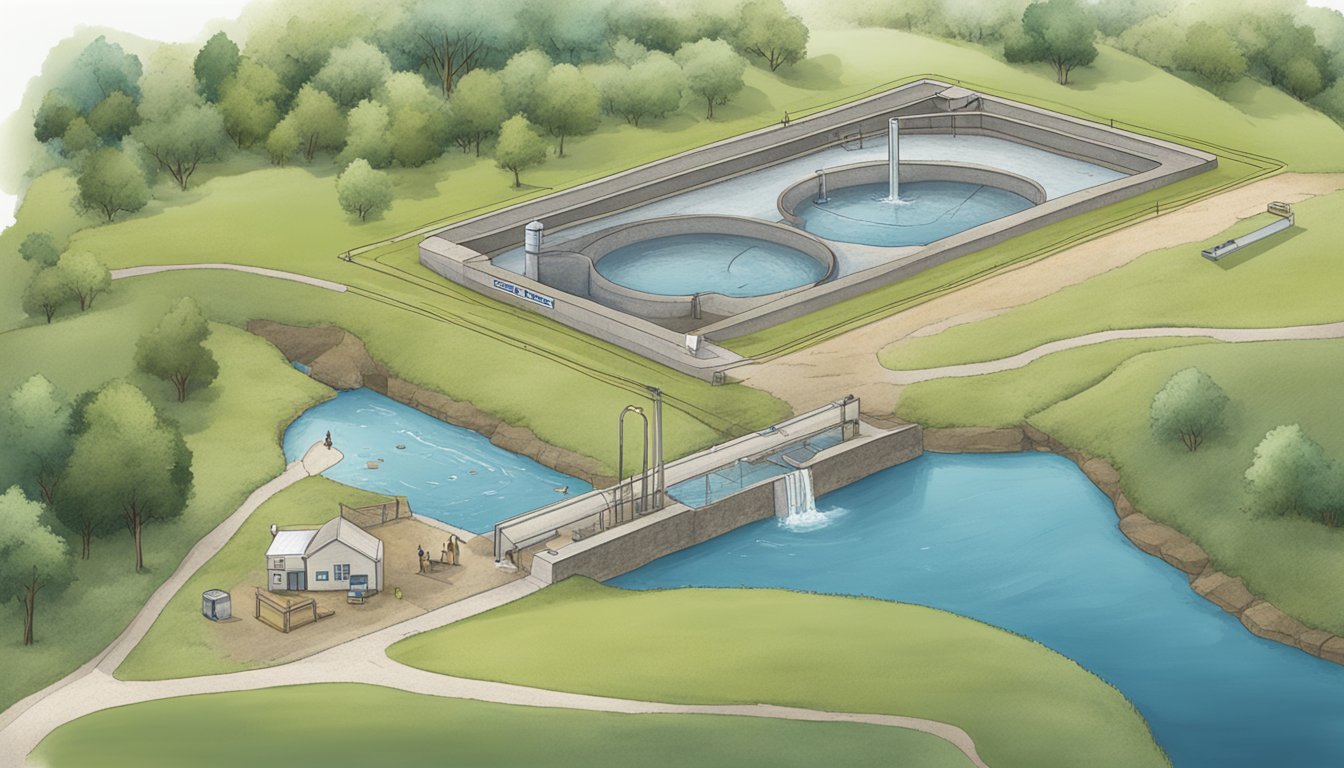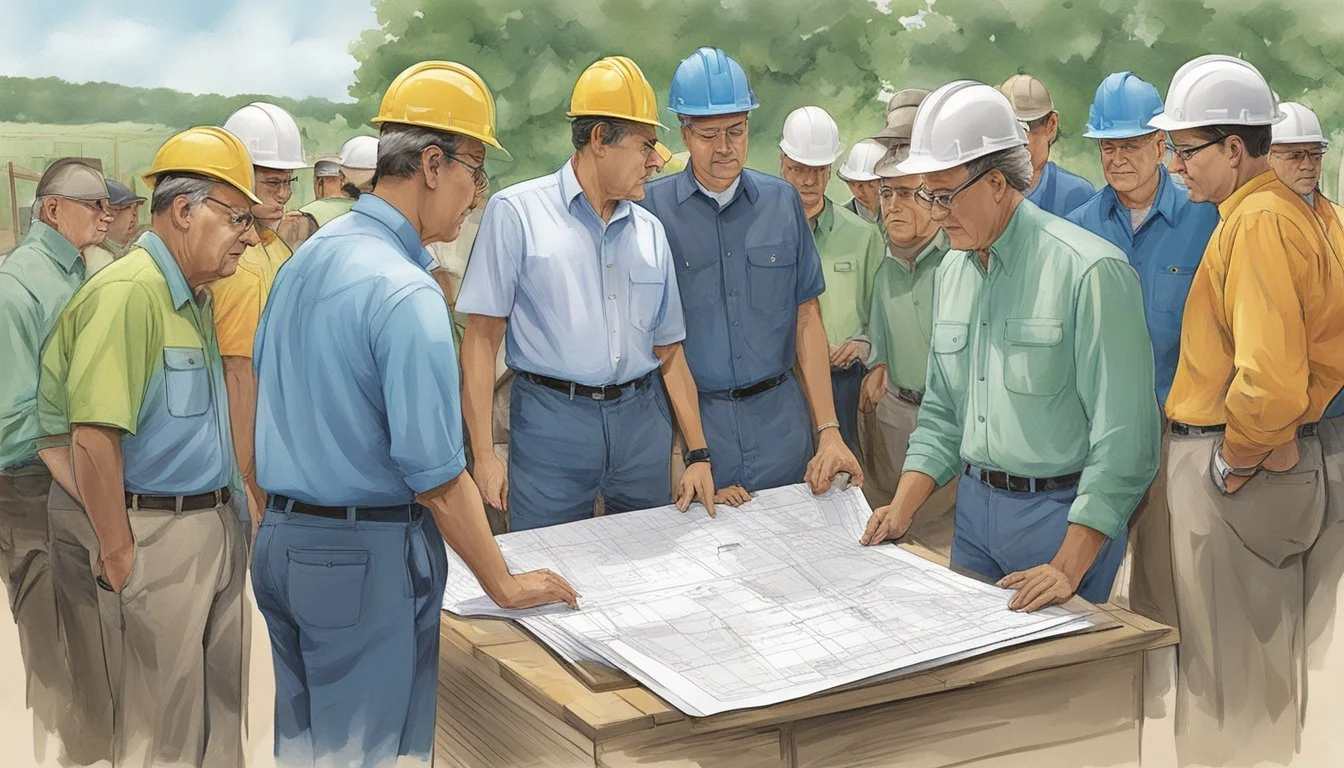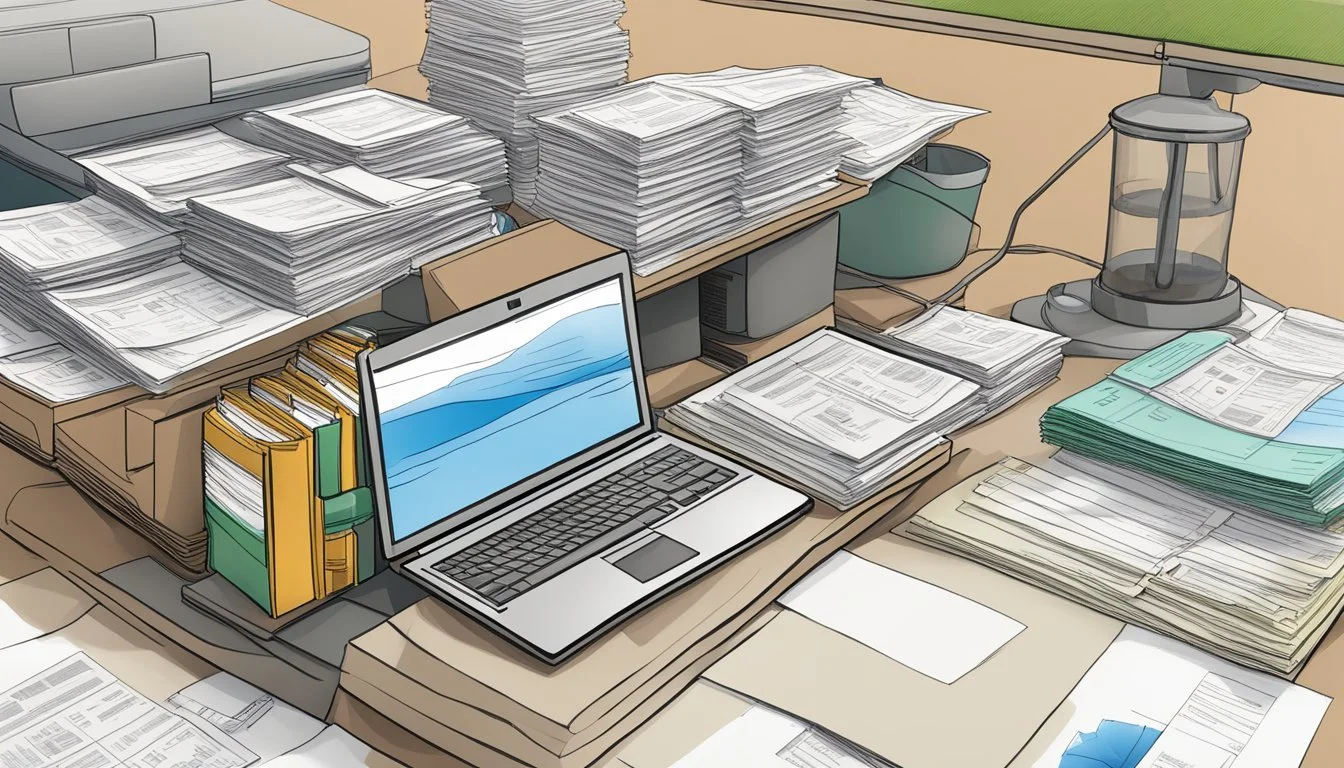Wisconsin Water Well Regulations
Understanding the Legal Framework
Wisconsin takes the safety of its drinking water seriously, with carefully designed regulations in place to manage water wells across the state. Groundwater, which supplies approximately one-quarter of the state's population, is accessed predominantly through private wells. These regulations ensure that wells are constructed, maintained, and, if necessary, properly abandoned, in a way that protects the water supply and public health. The standards detailed in Wisconsin's administrative code, particularly Chapter NR 812, lay the groundwork for the protection and maintenance of private wells, and consequently, the quality of groundwater used for drinking.
These regulations are comprehensive, covering a range of considerations including the proper location of wells, construction materials, and standards for contractors. Private well owners are afforded a level of autonomy in managing their water supply, but with this comes the responsibility to adhere to regulations established for the public's welfare. This includes regular testing of water quality as private wells do not fall under the same rigorous testing as public water systems.
In Wisconsin, the filling and sealing of unused wells is a critical component of managing the state's groundwater resources. Proper procedures, as outlined by the Wisconsin Department of Natural Resources, are required to prevent contamination of the underground aquifers. These protocols contribute to safeguarding the state's drinking water from pollutants and play a key role in sustainable water resource management.
Legal Framework for Water Well Regulation in Wisconsin
Wisconsin's water well regulations are detailed and specific, governed mostly by the Wisconsin Administrative Code and particularly by various chapters such as NR 812, NR 123, NR 140, and NR 146. These rules ensure the protection of groundwater resources and prescribe the standards for well construction, water supply systems, and environmental safeguards.
Wisconsin Administrative Code and NR 812
The Wisconsin Administrative Code is decisive in establishing requirements for well construction and pump installation. Especially, Chapter NR 812 provides extensive guidelines on how wells must be constructed to avoid contamination, ensure safe drinking water, and protect the water table. Specifications in this chapter set forth minimum distances from contamination sources, as well as material and construction requirements for safe water wells.
Compliance with NR 123, NR 140, and NR 146
Beyond construction, there are further regulations that well owners must adhere to for ongoing compliance. Specifically, NR 123 addresses permits for wastewater discharge, impacting groundwater quality through potential contaminants. Chapters NR 140 and NR 146 detail the criteria for groundwater quality, and the responsibility of well owners and users to monitor and maintain their water supply within these standards.
Groundwater Protection and Regulation
Groundwater protection in Wisconsin is underscored by preventive and remedial regulations. These laws are in place to ensure that the extraction of groundwater through wells does not negatively impact the environment or public health. Regulatory efforts focus on mitigating the risks of water well contamination and overexploitation, thereby securing a sustainable water supply for current and future demands. Compliance with chapters such as NR 123, NR 140, and NR 146 is crucial in upholding these protections.
Water Well Construction Guidelines
Wisconsin has specific regulations to ensure the safety and reliability of water wells. The construction of these wells must comply with Chapter NR 812 to protect water quality and public health.
Permitting and Department Approval Procedures
Before any well construction begins, the well constructor must obtain the necessary permits from the Department of Natural Resources (DNR). The permitting process requires detailed plans that comply with state standards, ensuring that both water quality and environmental integrity are maintained. Proof of notification to affected parties as described in NR 812.26 must be provided.
Well Design and Construction Standards
The design and construction of wells in Wisconsin must adhere to the stringent standards to maintain the integrity of the well and the safety of the water. This includes regulations on the location of the well, distance from contamination sources, and specific construction practices to prevent the ingress of contaminants.
Materials and Installation for Well Construction
Only approved materials that meet the state's safety criteria can be used in well construction. These materials include those for the well screen, casing, and linings, ensuring long-term water quality and system durability. All installations must follow guidelines that ensure proper handling and use of materials.
Well Casing and Cap Requirements
A sound well casing is crucial for preventing contamination. It must extend a certain number of feet above ground and into solid bedrock or confining material below ground. Casings need to be properly sealed with cement grout to prevent any exchange between the well and the surrounding soil and rock. A vermin-proof well cap is required to prevent contaminants from entering at the top of the well.
Water Well Operation and Maintenance
In Wisconsin, adherence to stringent operation and maintenance regulations ensures that water wells function safely and efficiently. Proper procedures are in place for both public and private wells, focusing on inspection, well integrity, and water quality management.
Operational Standards for Public and Private Wells
Public and private water wells in Wisconsin must meet certain operational standards to comply with state regulations. Public wells are subject to codes such as NR 809 - Safe Drinking Water, which outlines the requirements for safe public drinking water, and NR 811 & NR 811 Appendix, which dictate the operation and design of community water systems. Operators of private wells, serving fewer than 25 people, are responsible for meeting standards that protect groundwater from contamination and ensure a safe water supply.
Regular Well Inspections and Reporting
It is recommended that well owners schedule regular well inspections to ensure the structural integrity and safe operation of the well system. Inspections typically involve checking the well cover, casing, depth, and the functionality of the pump and pressure tank. Prompt reporting of any issues or irregularities observed during inspections helps prevent potential problems from escalating.
Filling, Sealing, and Abandonment of Wells
Proper well abandonment is critical for protecting groundwater. Guidelines for well filling and sealing are detailed in Chapter NR 812, which outlines the correct procedures to be followed when a well is no longer in use. These procedures ensure that wells are filled and sealed by licensed well drillers or pump installers, safeguarding groundwater from contamination.
Water Treatment and Quality Management
To maintain high-quality drinking water, well owners often implement water treatment systems. These systems, managed by homeowners or professionals, must be maintained regularly to retain their effectiveness in treating the water. Additionally, the Groundwater Quality Standards (NR 140) set the parameters for contaminants in the water, ensuring it meets health and safety benchmarks for consumption.
Certification and Responsibilities of Well Professionals
In Wisconsin, well professionals are held to strict standards to protect groundwater resources. These individuals must be proficient in their trade, compliant with state regulations, and responsible for safeguarding public health.
Accreditation of Well Drillers and Pump Installers
Wisconsin mandates that both well drillers and pump installers obtain proper licensure to operate. This accreditation ensures that professionals meet the prerequisite requirements and possess the necessary knowledge and experience. Rigorous training programs and continuous education are a part of the licensure process, aimed at maintaining high industry standards.
Proper Well Drilling and Pump Installation Practices
Professionals must adhere to legal and safety standards during pump installation and drilling activities. The adherence to Chapter NR 146 of the Wisconsin Administrative Code is critical to ensure well integrity and water quality. This involves following specifications, obtaining necessary approvals, and working within the framework of well construction and pump installation guidelines.
Well Driller and Pump Installer Registration
To become a registered well driller or pump installer in Wisconsin, an individual must submit appropriate documentation confirming their expertise and understanding of the legal requirements. Moreover, ongoing pump installer registration is required to maintain their eligibility to practice within the state. These steps foster accountability and continual adherence to the established water well standards.
Health and Safety in Groundwater Consumption
Water wells in Wisconsin serve as a crucial source of drinking water, making it essential to uphold rigorous standards for health and safety. Guidelines ensure that groundwater is safe for consumption, free from harmful levels of bacteria, arsenic, nitrates, and other pollutants, and methods are in place to prevent contamination.
Ensuring Safe Drinking Water Standards
Wisconsin's groundwater standards include an enforcement standard to regulate discharge limits and a preventive action limit designed to initiate measures to thwart further contamination. These standards are crucial in maintaining the safety of public drinking water and groundwater drinking water supplies to protect public health.
Testing for Bacteria, Arsenic, Nitrates, and Other Pollutants
Regular testing is vital for identifying the presence of harmful substances in groundwater. Wells should be checked for bacteria, arsenic, nitrates, and synthetic compounds like PFAS, known to affect groundwater quality. Private well owners are advised to undertake annual testing to ensure safety.
Groundwater Contamination Prevention
Prevention strategies are key to safeguarding Wisconsin's groundwater from pollutants. The state's regulations aim to minimize pollutant concentrations within the groundwater through numeric standards, which apply across all regulatory programs concerned with groundwater quality. Maintaining these standards is essential for preventing groundwater contamination and ensuring contaminant-free drinking water.
Regulatory Procedures for High Capacity and Specialized Wells
Wisconsin has established comprehensive guidelines for managing water resources through the regulation of high capacity wells and specialized wells. These regulations ensure the sustainable use of water while safeguarding public health.
Approval and Regulation of High Capacity Wells
In Wisconsin, high capacity wells are defined as those capable of withdrawing more than 100,000 gallons per day. Regulatory oversight is primarily managed by the Wisconsin Department of Natural Resources (DNR), as emphasized in Regulating High Capacity Wells in Wisconsin. Approval of these wells necessitates a detailed application process which includes an evaluation of potential environmental effects. The DNR's authority stems from both statutory mandates and constitutional responsibilities to protect the waters of the state.
Permit Application: Applicants must submit information detailing the intended use, pump capacity, and potential impact on surrounding water bodies.
Review Process: The DNR conducts a technical review, encompassing both the environmental impact analysis and a public interest determination.
Specifics for Wastewater Treatment Plant Wells
Wastewater treatment plant wells are subject to specialized provisions due to their role in public sanitation and environmental protection. These wells, which manage the byproducts of wastewater treatment, are subjected to strict standards to prevent contamination.
Construction Requirements: Wells must be constructed in accordance with Chapter NR 812 of the Wisconsin Administrative Code to ensure that pollutants are not introduced into groundwater.
Operational Guidelines: Regular monitoring and reporting are mandated to maintain compliance with health and safety regulations.
Well Use in Schools and Public Institutions
Wells that serve schools and other public institutions are considered public water systems and are closely regulated to guarantee safe drinking water for these communities.
Testing and Treatment: Frequent water quality testing and necessary treatment are required to meet drinking water standards.
Maintenance Protocol: Ongoing maintenance is mandated to prevent system degradation that could adversely affect water quality.
By adhering to these regulatory procedures, Wisconsin aims to manage its water resources responsively, ensuring the welfare of both its environment and residents.
Public Engagement and Administrative Oversight
Wisconsin’s water well regulations involve several levels of engagement, from individual citizen participation to administrative oversight by county officials. These components are crucial for maintaining transparency, compliance, and the safe provision of water.
Public Comment and Participation in the Water Well Policies
Public comment periods allow Wisconsin residents to voice their opinions on water well policies and regulations. When new policies or revisions are proposed, they are often subject to public review. For example, the Natural Resources Board approves updates to the Well Code after discussion and public input, ensuring that stakeholders have a say in water resource management.
Publications and Resources for Stakeholders
The Wisconsin Department of Natural Resources (DNR) provides publications and guidelines to assist stakeholders in understanding water well standards. These resources include operational handbooks, such as the one found here, which clarify procedures for proper well construction and maintenance.
County Administration's Role in Well Regulation
County administration has a direct hand in local water well regulation enforcement. Local authorities review ordinances and use statewide guidance to ensure water systems comply with the standards set forth in the administrative code, as referenced in DNR documentation. They play a crucial role in the practical application of water safety policies.
Financial Assistance and Resources for Wells
Wisconsin offers a variety of financial assistance programs and resources targeted at supporting private well owners, particularly when they face issues of water contamination. These programs are designed to provide substantial help in terms of grants and funding, cost coverage, and management of water resources.
Grants and Funding for Private Well Owners
Private well owners in Wisconsin may be eligible for financial assistance to construct, replace, or treat contaminated water supplies. This includes both residential and non-community public water system wells. The American Rescue Plan Act of 2021 (ARPA) well compensation grant program is one such initiative that caters specifically to eligible landowners, renters, or business owners.
Well Compensation Program and Fee Structures
The Well Compensation Grant Program administered by the Wisconsin Department of Natural Resources offers up to 75% of the funding for eligible costs associated with well issues, capping at a $12,000 maximum award. Homeowners need to be aware that family or business income thresholds apply, and total eligible project costs will affect the final grant amount.
Managing Withdrawals and Water Use Fees
In the state of Wisconsin, the management of large withdrawals, typically over 100,000 gallons per day, incurs a water use fee. This fee structure plays a vital role in the sustainable management of water resources across the state, ensuring that both homeowners and business entities contribute to the conservation of water through adequate fee systems.
Record Keeping and Information Dissemination
Wisconsin's Department of Natural Resources (DNR) mandates stringent records maintenance and public access to essential documents pertaining to private and public water wells. These records ensure the safe construction, maintenance, and operating procedures of wells throughout the state.
Importance of Well Construction Reports
A well construction report is a crucial document recording the specifics of a well's construction, providing a record of the structure and geological layers it penetrates. These reports include details about the well's depth, casing type, and diameter. Furthermore, they may contain information on any driven point wells, ensuring they comply with state construction standards. Retaining these reports is mandatory for both well owners and contractors.
Groundwater Program and Well Records Access
The Groundwater Program facilitates the preservation and accessibility of well records, which encompass well construction and maintenance histories. These records are open for public access, offering transparency and aiding the tracking of groundwater quality. Essential components, such as sample faucets, are listed, allowing users to understand modifications that impact water sampling and testing accuracy.
Property Transfer Inspections and Well Work Reports
At the time of property transfer, well inspections are requisite, ensuring that the new owner is informed of the well's condition and any potential issues. These inspections cover the well's structural integrity and the presence of sample faucets for water testing. Additionally, well filling and sealing reports are required when a well is decommissioned, creating a comprehensive history of the well's lifecycle to protect Wisconsin's groundwater resources.
Private Well Codes and Homeowner Responsibilities
In Wisconsin, the protection and maintenance of private wells fall on the homeowners. It is crucial to understand the specific regulations governing well construction, reconstruction, filling, and sealing and the continuous management of the private water supply to ensure safe drinking water.
Understanding the Private Well Code
Wisconsin's Private Well Code stipulates that private wells should have fewer than 15 connections and serve fewer than 25 people, typically one household. The code prescribes that the private wells are safe and reliable if they are sited wisely. Homeowners must comply with these regulations from the Wisconsin DNR when installing or maintaining their wells.
Responsibilities in Well Construction, Reconstruction, and Sealing
Homeowner responsibilities during well construction involve ensuring that wells are constructed by licensed professionals following the state code. This includes proper drillhole placement to prevent contamination from surface sources, such as manure. For reconstruction or repair, homeowners must adhere to the same regulations to safeguard the water quality. If a well is no longer in use, proper filling and sealing methods must be followed according to Wisconsin's guidelines, to prevent pollutants from entering groundwater supplies.
Water Supply Management for Homeowners
Managing a private water supply means regular testing for contaminants and proper system maintenance. Homeowners should follow instructions for water testing and address any issues promptly to keep their supply safe. Maintenance responsibilities may include periodic disinfection and equipment checks, as outlined by the Wisconsin Department of Health Services.
Procedures for Well Drilling and Equipment Installation
Wisconsin's water well regulations are established to ensure the safety and integrity of water wells. Compliance with these standards is vital during the drilling process and the subsequent installation of well equipment.
Technical Specifications for Drilling and Equipment
When drilling a water well in Wisconsin, licensed well drillers are required to adhere to strict specifications. These include ensuring proper casing materials and secure well caps to prevent surface contamination. Well construction equipment and materials must meet the Wisconsin Legislature: Chapter NR 812 standards, enforcing that only high-quality and state-approved components are used. Drillholes must be constructed in a manner that prevents the entrance of contaminants and secures the long-term safety of the water supply.
Guidelines for Pumps and Related Infrastructure
Pump installation in Wisconsin must be carried out by registered pump installers. Guidelines specify that pumps and related infrastructure must be designed to prevent water contamination and loss of water from the system. Setback requirements, construction, and approval information are crucial for planning projects and are detailed in the Wisconsin DNR’s guidelines to assist pump installers. Continuing education is often required to maintain pump installer registration, ensuring professionals are up-to-date with best practices and new regulations. Adherence to these guidelines is essential in protecting the groundwater and ensuring a safe water supply for the users.
Frequently Asked Questions
When it comes to managing water wells in Wisconsin, property owners must adhere to specific regulations and guidelines to ensure safety and compliance with state laws.
What are the minimum construction standards for water wells in Wisconsin?
In Wisconsin, water wells must be constructed by licensed well drillers who follow the minimum construction standards as set by the Department of Natural Resources. These standards dictate well location, quality of materials, and construction methods to protect groundwater.
Are there specific well inspection guidelines for Wisconsin property owners?
Yes, Wisconsin property owners are responsible for regularly inspecting their wells to ensure they are safe and free of contaminants. Guidelines include checking the well cap, casing, and the surrounding area for signs of damage or contamination.
What distance is required between a well and septic system in Wisconsin?
The required distance between a well and a septic system in Wisconsin is at least 50 feet. However, this distance may vary depending on local regulations and the specifics of the property, such as soil conditions and the size of the septic system.
What permits are needed for well drilling and water usage in Wisconsin?
Before drilling a well, property owners must obtain a well construction permit from the Wisconsin Department of Natural Resources, which governs both well construction and water withdrawal to ensure sustainability and prevent adverse effects on the environment.
How often should water wells be tested in Wisconsin?
Water wells in Wisconsin should be tested annually for bacterial contamination, nitrates, and any other contaminants of local concern. More frequent testing is recommended if there is a change in taste, odor, or appearance of the well water.
What is the process for decommissioning a well in Wisconsin?
The process for decommissioning a well in Wisconsin involves hiring a licensed well driller or pump installer to properly fill and seal the well. This is to prevent the well from becoming a conduit for contaminants reaching groundwater supplies.


